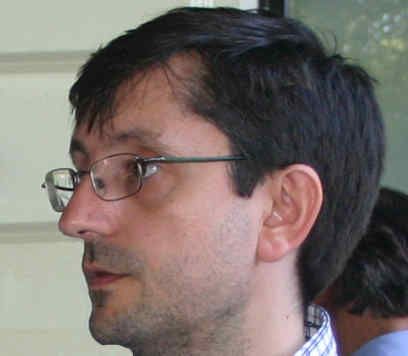The Future of Work and Wellbeing: The Pissarides Review
Project overview:
This project will research the implications of automation technologies and will examine how they are transforming work, society and the economy in the UK.
Automation technologies are profoundly transforming work, society and the economy in the UK and there is evidence that the adoption of these technologies has accelerated during the COVID-19 pandemic, potentially compounding many of the most direct negative effects of the pandemic on vulnerable workers. The project team will research the implications of how automation technologies are transforming work, society, and the economy in the UK in terms of access to work; working conditions; worker health and well-being; and inequalities between different groups in the population according to age, ethnicity, gender, socio-economic group and geographical location.
The project team is composed of leading interdisciplinary academics and policy professionals, led and supported operationally by the Institute of the Future of Work (IFOW). The labour market and macroeconomic expertise of Principal Investigator Professor Sir Christopher Pissarides will be augmented by the team’s expertise in strategic HR management, biomathematics, health economics, urban policy and research translation and dissemination. Sir Christopher’s Nobel Prize-winning research into labour market frictions will form the basis of the project, which will adopt a multi-disciplinary approach to understanding how ‘frictions’ in skills, information and geography manifest and why workers are exposed to them.
The project will significantly deepen understanding of technological transformation by analysing the history and trajectories of technological transformation in the UK; the impacts of technological transformation on work and well-being; the comparative work and well-being outcomes for groups living in labour markets characterised by different levels of disruption and automation risk; and the factors that influence the nature and pace of the adoption of automation technologies.
The team will analyse how the consequent impacts for health and well-being are distributed between socio-demographic groups and spatial communities and whether they are exacerbating existing inequalities in the UK.
Key activities will include:
- The first national Disruption Index to map and track technological disruption across the UK
- A firm-level survey to explore the motives, barriers and effects of introducing automation technologies
- A deep dive into work challenges and opportunities into eight locations in England, Wales and Scotland
The research will culminate in the establishment of influential nationwide dissemination networks for “future of work” research and policy, and the creation of fora for collaboration between business, unions, academics, workers, and policy makers.
The findings will inform the development of social policies to address disadvantages, mitigate risks and build resilience for vulnerable communities and groups arising from technological disruption. These proposed policies and strategies will build the adaptive capacity of individuals, firms, communities and groups and ultimately support the building of a future of better work.
This project is a three-year collaboration between the Institute for the Future of Work, Imperial College and Warwick Business School.
Team:
-
Professor Sir Christopher Pissarides, IFOW and LSE
-
Anna Thomas, IFOW
-
Professor Jolene Skordis, UCL
-
Professor Maurcio Barahona, Imperial College London
- Professor James Hayton, University of Warwick
Other team members:
- Dr Abigail Gilbert, IFOW
- Dr Jonathan Clarke, Imperial College London
Further information:
- https://www.nuffieldfoundation.org/project/the-future-of-work-and-wellbeing-the-pissarides-ifow-review
- https://www.nuffieldfoundation.org/news/4-3-million-research-to-shape-future-of-work-and-skills
- https://www.ifow.org/news-articles/ifow-announce-the-future-of-work-and-wellbeing-the-pissarides-review
--tojpeg_1538046453332_x4.jpg)
